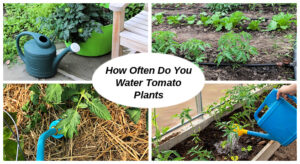Garden Soil Need Water
If you’re new to gardening or are simply looking to improve your plants, you may be wondering if garden soil needs water. It’s important to know that soil is not just “dirt” — it’s also a microscopic ecosystem that supports a multitude of life forms, from single-celled microorganisms to wriggling earthworms.
Garden Soil is composed of particles that are characterized by size and composition: sand, clay and silt. The size of these particles determines the amount of minerals available for a plant’s root system. The amount of nutrients a soil contains can be altered with various fertilizers and amendments to improve soil quality. These include a combination of organic matter and additives like compost, peat moss, and bark shredding.

These products help improve structure, nutrient content and drainage of your soil. They also work to increase the moisture-holding capacity of your soil, allowing it to absorb more water. It’s important to know that some products are designed specifically for specific crops or flower beds, while others can be mixed with your existing soil in a variety of ways. Generally speaking, it’s best to start with a pre-mixed garden soil product and add organic matter and other nutrients to it.
Does Garden Soil Need Water?
You can test whether the soil you’re using is ready to work by squeezing a handful of it and seeing if it crumbles into a ball when you press it with your thumb. If the ball does not crumble, it is too wet and will not be workable to plant in.
There are many different types of topsoil available on the market, from naturally occurring topsoil that’s gathered off of a property to manufactured topsoil produced by combining various ingredients in bulk production facilities. Some of these materials are organic, while others are more industrial in nature, including sand, clay, composted manure or sawdust.
If you are purchasing garden soil for your vegetable or flower beds, you should also ask for the specific ingredients used in it. These ingredients are generally listed on the back of the bag or container. Most garden soils are made of a combination of enriched topsoil and other unique ingredients, each of which is intended to benefit particular plants. This allows you to customize your garden by growing the plants you want, while giving them a richer and more healthy environment for success.
Some garden soils also contain added humic and fulvic acids to enhance the microbial activity of your soil, which helps the roots absorb more water and nutrients. Adding these elements can help your garden to achieve a pH range that’s ideal for most vegetables.
In addition to humic and fulvic acid, garden soils should also have plenty of calcium, magnesium, iron, potassium and zinc, all essential for healthy plant growth. The optimum levels for all these nutrients vary according to the type of garden you’re planting and the weather conditions in your area.
Aside from a few exceptions, most garden plants do well in soil that has a pH level between 6.0 and 7.0. If your soil’s pH is too low, you can add a powdered acidifier like garden lime or powdered sulfur to correct it. Some garden vegetables prefer a higher pH, such as blueberries and azaleas, but this will depend on the specific types of plants you’re growing.